I’m still knocking out all those little “To Do” items that I have listed from the RT conference. One of them was to write up a summary of a great one day “un-conference” I attended called Book^2 Camp (Book Squared Camp).
This is a program based on open and out-of-the-box conversation and discussion around books. There’s no better way to explain than to describe my experience.
First of all, I signed up because I saw that Smart Bitch Sarah Wendell was tweeting about it. From initial glance, it appeared to be a meeting of book bloggers, media personnel, authors and readers to talk about what’s current in books. Plus there was a free cocktail hour. It was taking place at the Westin Bonaventure, the same hotel as the RT convention, so I jumped on board. (I hear they may be one before RWA as well, so I’m keeping my eyes peeled.)
We arrived in the meeting room and were given papers to come up with topic ideas to set the discussion grid. The idea was there was no set topics going in. The participants decided what they wanted to discuss. It was also up to us to be actively engaged and contribute to the conversation — in short, you get out of Book Camp what you put in. Don’t you just love how Zen it all sounds?
I was slightly intimidated at trying to come up with a topic that might interest a wide range of book people, but as the quintessential good student I did as the teacher told me and came up with this: “The Readership Divide: Who reads what?”
Not having hosted or even seen one of these discussions before, I resorted to my teaching days and ran it like a Socratic Seminar. We all sat in a circle and I started off the topic with a brief description and tried to acknowledge responses and keep the conversation going with open-ended questions.
Afterward, we were asked to type up a brief report of what was discussed in our session and so, again the good student, here it is:
The Readership Divide: Who Reads What?
The reason I thought of this topic was that I had dinner the previous night with my BFF Amelia. She was the one who first introduced me to romance novels and Amelia and her mum are definitely what you’d call romance super-readers. She asked me and Amanda Berry what we thought of e-readers. I replied that I loved my Kindle while Amanda admitted to not owning an e-reader.
Amelia stated that she wouldn’t touch them because she blames e-readers for the demise of her favorite bookstores. Her mother, on the other hand, now exclusively reads on Kindle and doesn’t go to bookstores anymore. Let me tell you, we used to go bookshopping every week and Linda (Amelia’s mum) would leave with armloads of books. Every week.
We made the comment that digital reading is still just a percentage of all books purchased and Amazon might have a lot more to do with the demise of bookstores. Amelia did admit she did order on Amazon quite a bit.
So my thoughts revolved around the fact that I, as an author, seem to be surrounded by people who are pro-digital. It’s a brave new world, better access, more opportunity. But as a fish in this bowl, I can’t see beyond my world. It made me wonder who are the people reading digital vs. print? Is there an economic divide? For example, many of the books donated to schools are print books. What about teens? We thought that it would be the old school readers who would hang on, but long-time readers such as Linda have totally adopted e-readers because they can adjust the print size.
Some interesting thoughts brought up in the discussion:
1. Cheap e-readers might be the tipping point to convert more readers to digital
2. It’s not necessarily a monetary issue. Many people can afford to buy ereaders, but choose to read print for the experience.
3. Digital prices on ebooks doesn’t necessarily sway readers since they often cost as much as print books
4. There are programs such as Worldreader.org which distribute books to developing nations through e-readers. So whereas in the U.S. print books are used for charity because distribution and printing is cheap, globally the use of e-readers can actually be a more economical solution because it negates printing, shipping & distribution costs.
5. Many teens are still reading print, but then going online to participate in fan forums where they can interact with other readers and do activities such as share fan fiction.
6. Groups are trying to develop online reading programs for teens hoping that they’ll be as addictive as online games. But we’re not sure whether it has or will ever have the same level of participation as games such as Warcraft.
7. DRM and lending restrictions are a deterrent towards digital adoption. Though many readers don’t know about DRM, librarians often have to explain and educate readers about it. Meanwhile, the print book is on the shelf and easily available without the same restrictions.
8. While reading print, some readers noted that they got more out of the read. Perhaps this is linked to how our cognitive development is tied to reading print. There have been studies that showed a child’s experience of gathering information is intimately tied to the act of turning a page. As long as children are taught on print books, print will persist.
9. People so often sit in front of their computer for a job and don’t want to read online as well. But with e-readers which they can hold in their hands like a book, this feeling begins to change.
10. A participant mentioned a book titled Cognitive Surplus by Clay Shirky which posits that the U.S. has a surplus of cognitive and intellectual energy that isn’t being used. This surplus can manifest itself through more complex and fruitful collaborations and technology can serve as a medium.
(I found this to be a much more positive view than a book I read on a similar theme as part of my undergraduate required reading, Amusing Ourselves to Death by Neil Postman. Though the two are not necessarily in disagreement because Postman concentrates on the detriments of TV and show biz where is sounds like Shirky concentrates on the potential interactive nature of the internet and other new technologies.)
The parentheses are there because I had this thought subsequently, perhaps during the cocktail hour that followed, and didn’t bring it up at the session.
In any case, I hope there will indeed be a Book Camp before RWA. It was a refreshing and thought-provoking experience. I felt my mind expanding and crackling with new dendritic connections. Yes. It crackles.
But seriously, I can talk books for hours and hours and it’s nice to be amongst people who feel the same. Do check out these Book Camps if you get a chance.
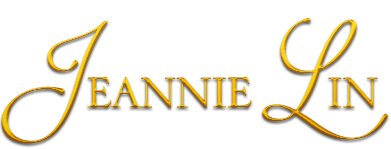

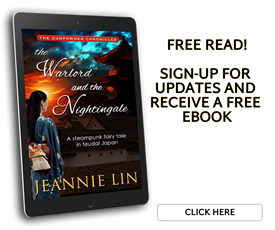
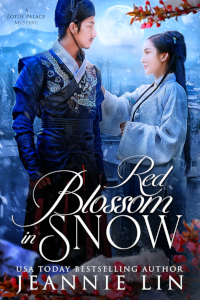
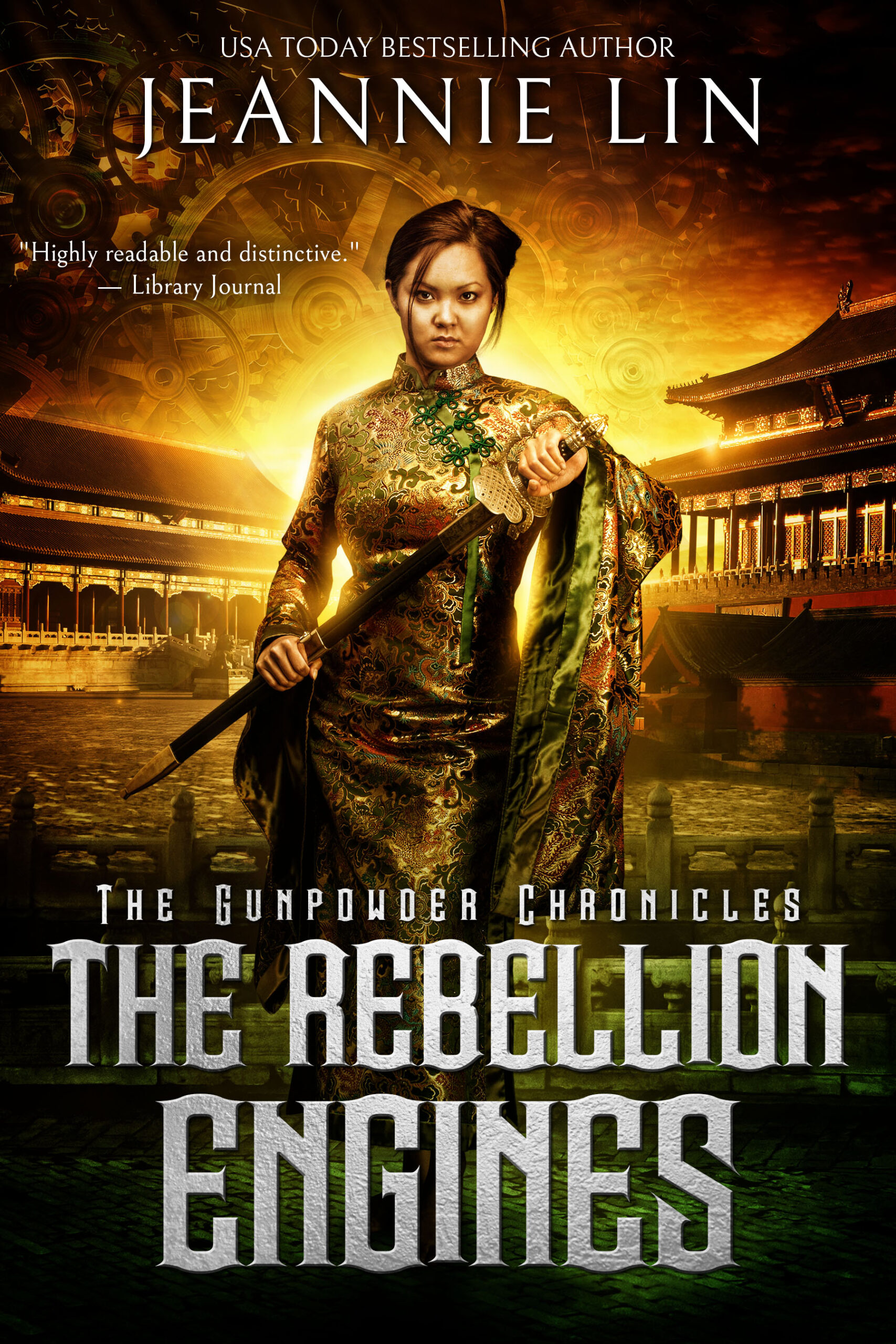

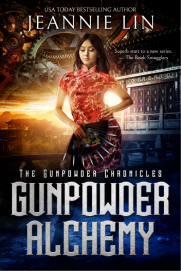
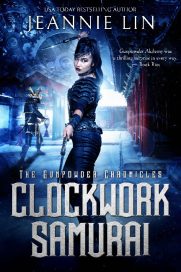
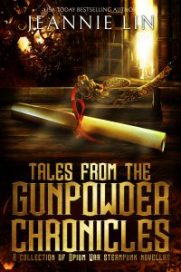
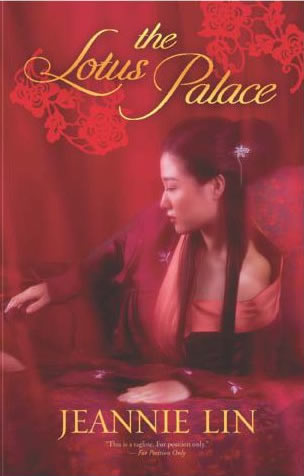
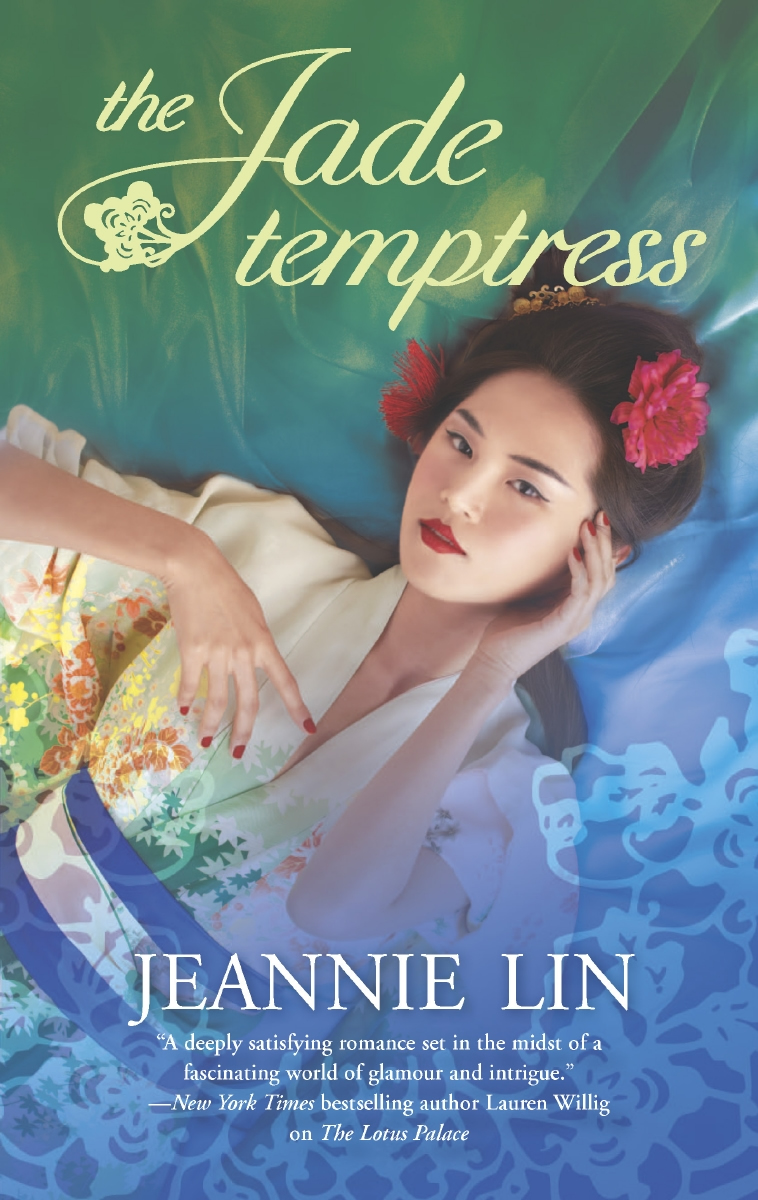
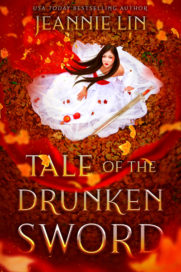


Dear Author » Monday Midday Links: Disintermediation and the valued supply links
Apr 18, 2011 @ 14:00:58
[…] of cover, blurb, and presentation as the traditionally published author.****Jeannie Lin posted a detailed summary of the session she led at RT Bookcamp. It’s worth a read. I think I’ve mentioned before that I enjoyed these group […]
Apr 18, 2011 @ 14:04:40
I’ve wondered about my own dislike of e-readers. I mean, I ought to like them — they’re essentially the “Hitchhiker’s Guide to the Galaxy,” right? — and they’d allow me to keep purchasing books without filling my house with them.
Except… for some reason, I don’t feel like I “own” things I purchase electronically. That’s particularly true of electronic books. What happens to my ebooks if Amazon goes bankrupt? What if they no longer have the right to distribute electronic copies of a book — could they take away a book I’ve already purchased? Could my entire library be wiped out by a computer glitch?
These (and the cost of e-readers) are the issues that have kept me away from them so far.
Apr 18, 2011 @ 15:27:27
Thanks for the summary! I am definately No. 2:
“It’s not necessarily a monetary issue. Many people can afford to buy ereaders, but choose to read print for the experience.”
My children – who probably will be ereaders – know to bury me with a book in hand.
Apr 18, 2011 @ 15:29:34
And according to Amazon, et. al. we indeed don’t own our electronic copies. *grumbles* Though I tend to ignore that fact when I buy ebooks ( I figure when I borrow books from the library, I tend to wrack up fines anyway, so this is a more convenient way of doing the same thing and I keep the books longer), this has led to the expensive behavior of still buying print versions of the books I want to have and to hold along with buying electronic versions of books I just want to read.
Apr 21, 2011 @ 03:37:00
I wish Amusing Ourselves To Death had been required reading for me, and I started off in Communications! I don’t think Postman would have been against e-readers, his main point (IIRC) seemed to be the ever-faster cut-rate of images on TV getting us addicted to the small adrenaline rise that brings. Reading (on whatever medium) allows someone to take in texts at their own pace, and still engages more mental skills than TV, I think.
(And hi! I discovered your site while looking for Asian fantasy writers online–and am thoroughly enjoying your blog.)
Apr 21, 2011 @ 19:06:34
I’m a newly-published m/m romance author who is still resisting getting an ereader, despite the fact that: 1) everyone I know who gets an ereader, loves it, and; 2) ereaders are hugely popular with the readers who read the kind of books that I write. I know I’ll give in at some point, but I just haven’t yet. 😉
BTW – I discovered your work through the chat session at Dear Author for Butterfly Swords. I’m reading Butterfly Swords right now and enjoying it very much. 😉 Like Janet C. above, I like to look for Asian authors out there. Bookmarking your blog now…
Apr 21, 2011 @ 19:30:18
I was an early e-reader adopter. I also live in Australia – and so am keenly aware of how much geographical restrictions on e-books impact on non-US citizens. As an Aussie basedin Australia, it is often quicker and easier for me to get hold of a print copy of a recent US release, than it is to either 1) wait for and/or find an ebook version of the release that is not sbuject to restrictions in Australia 2) find a way to circumvent the restriction…
It’s one of those truly absurd things about ebooks v print that will need to be resolved before ebooks can really take off outside the US.
Apr 21, 2011 @ 21:41:59
Hi Janet! It’s been a while since I read Postman. I found his points eerily convincing, but still longed for some sort of constructive outlook from it. And glad you found the blog. If you’re writing an Asian novel, there’s a nice yahoo group I belong to as well: Authors of Asian novels. There’s a link in the About section.
Hi Jan – I do so love my e-reader. The key for me was getting something that feels like a book in terms of portability. I liked to read while sprawled out on my floor and not while sitting in front of a computer, preferably with a cat nearby if there’s one available. 🙂
Shannon – I’ve heard similar things from a reader in Thailand. After buying the ebook version, she has to additionally pay a fee for Whispernet that we don’t have here in the states. Ugh…It’s a global reading community now more than ever and you think digital would be leading the charge rather than holding it back!